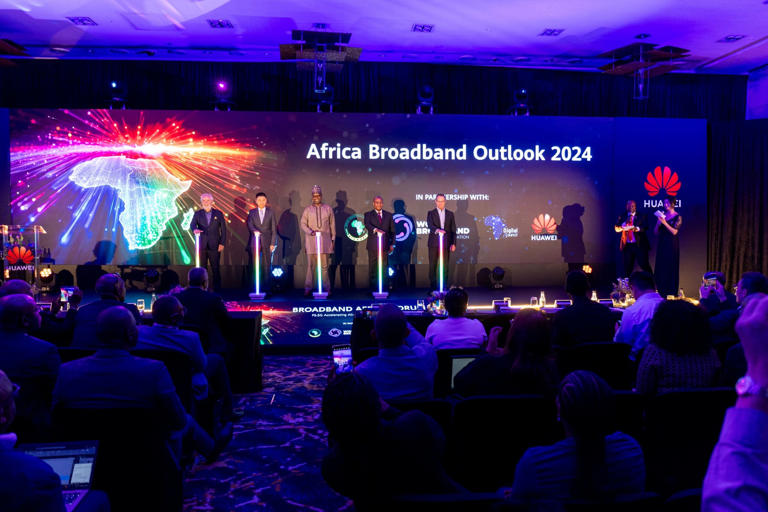
Our Correspondent | Africa Guardian
Cape Town, AfricaTech Festival – The 2024 Africa Broadband Forum (BBAF 2024) convened successfully in Cape Town under the theme “F5.5G Accelerating All-Optical Connectivity in Africa.” The forum brought together over 150 experts and industry leaders from international organizations, government bodies, and telecom operators to discuss advancing fibre broadband infrastructure and policy in Africa.
Kim Jin, Vice President of Huawei’s Optical Business Product Line, delivered an opening speech on Huawei’s vision for building an intelligent, all-optical access network, aiming to capitalize on monetizing coverage, bandwidth, and user experience to drive digital growth across Africa. The forum’s discussions centered on policy frameworks, F5.5G innovation, and best practices for fibre development.
Martin Creaner, Secretary-General of the World Broadband Association (WBBA), highlighted global broadband trends in his keynote, focusing on the progress in speed, intelligence, and accessibility. Leaders from the African telecom industry shared insights, with the Managing Director of Eswatini Post and Telecommunication Company (EPTC) detailing their transformation from a copper-based carrier to a fibre network in alignment with national broadband goals. Safaricom’s Head of Home Broadband discussed recent innovations in their Fixed-Mobile Convergence (FMC) strategy, while MTN Nigeria’s General Manager of Broadband highlighted their “strategy-driven” approach in expanding fibre access.
A significant highlight was the release of the 2024 Broadband Africa White Paper, presented by the African Telecommunications Union (ATU) and Africa Analysis. The white paper offers a roadmap for fibre broadband development through 2030, projecting that broadband penetration in Africa will exceed 30% by 2030, with fibre connections making up over half of all broadband users. It also outlines strategic policies crucial to achieving universal broadband access across African markets.
The forum culminated with the presentation of the Optical Industry Development Pioneer Award, honoring individuals and organizations who have significantly advanced Africa’s fibre industry. Leaders from the WBBA, ATU, and Digital Council Africa (DCA) participated in celebrating these contributions.
Now in its sixth year, the Broadband Africa Forum has established itself as a vital platform for regional knowledge-sharing and collaboration. The forum continues to shape broadband policy and promote technological innovation, supporting Africa’s digital transformation efforts across diverse sectors.
___
